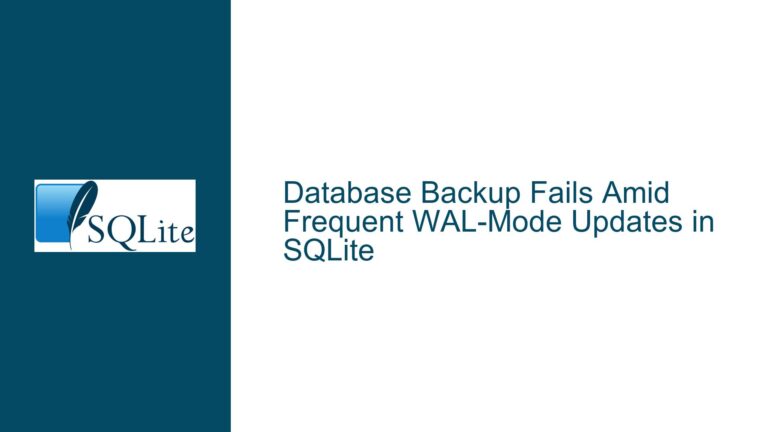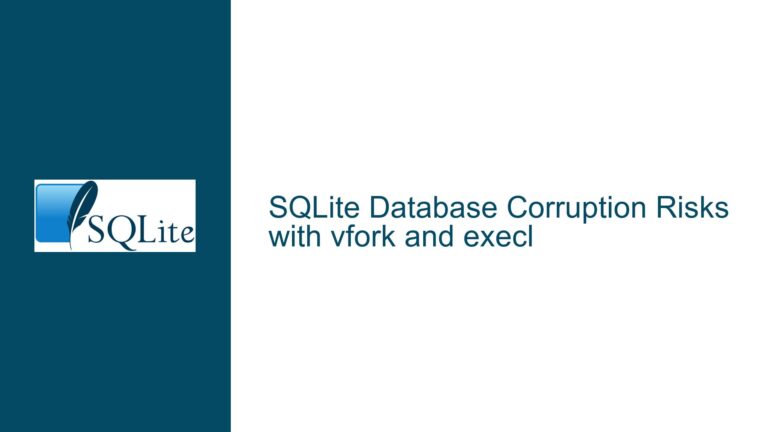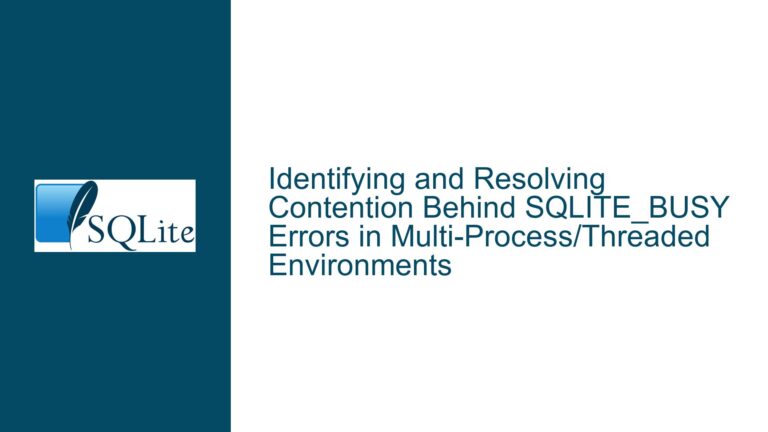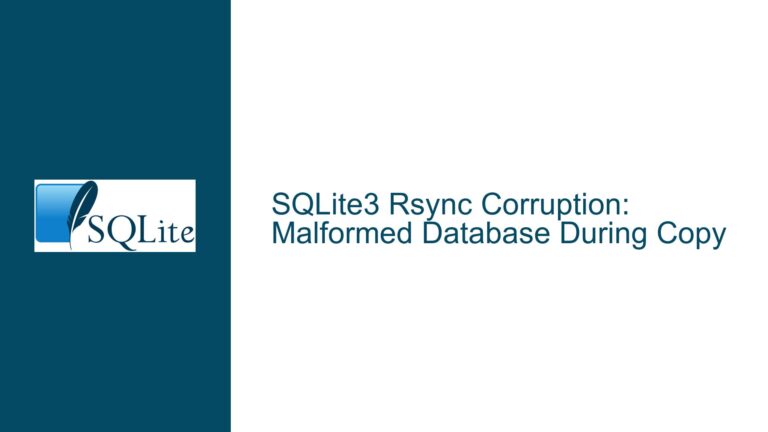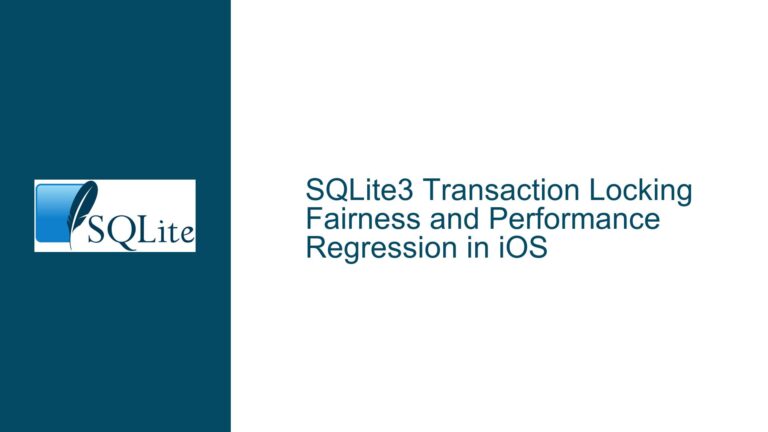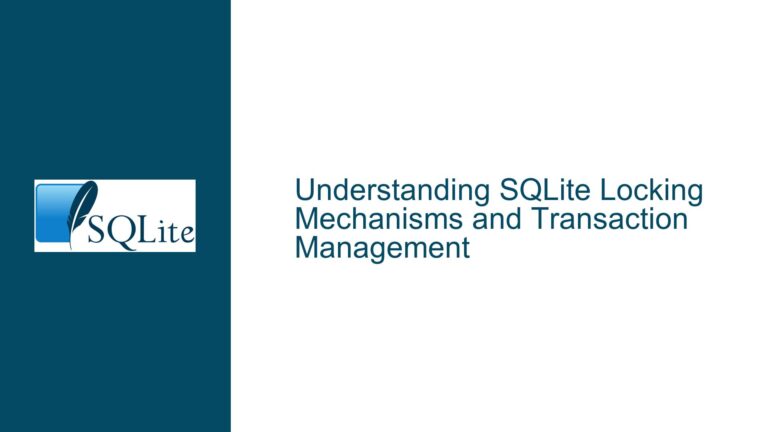Database Backup Fails Amid Frequent WAL-Mode Updates in SQLite
Understanding Backup Interruptions During High-Frequency WAL-Mode Transactions Mechanics of WAL-Mode Checkpoints and Backup Conflicts SQLite’s Write-Ahead Logging (WAL) mode introduces unique behaviors that directly impact backup operations. When a database operates in WAL mode, all write transactions append data to the -wal file instead of overwriting the main database file. Checkpoints periodically transfer data from…
